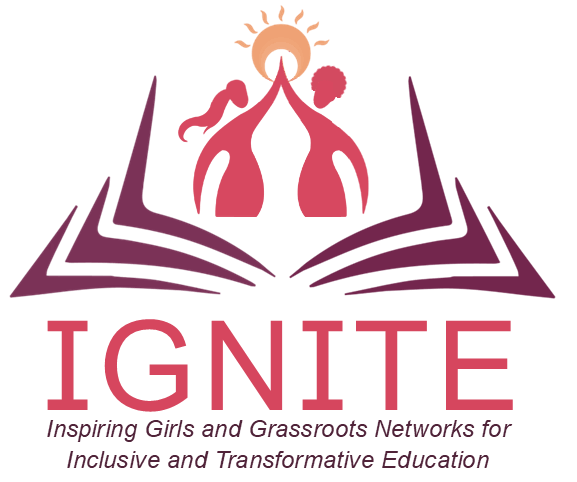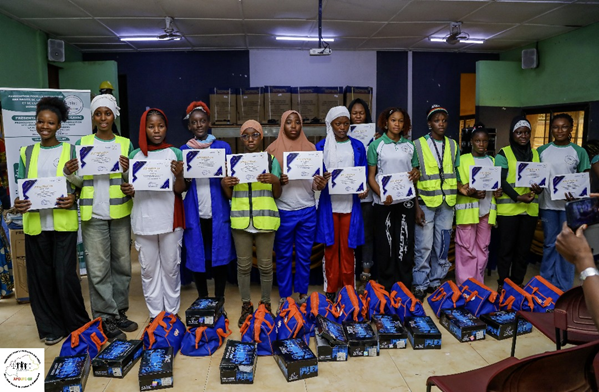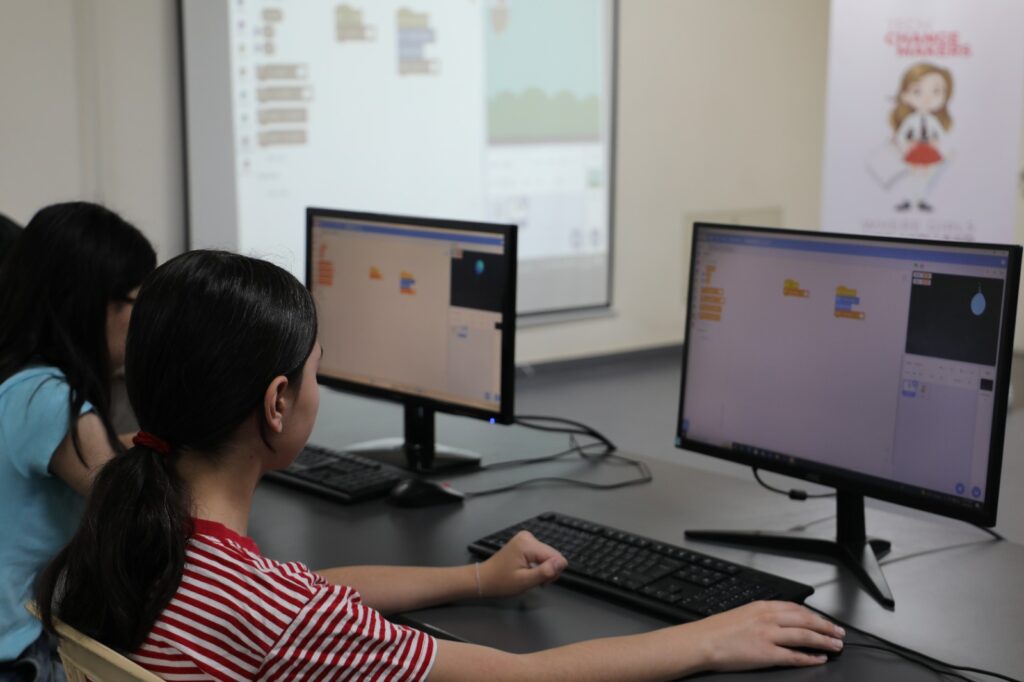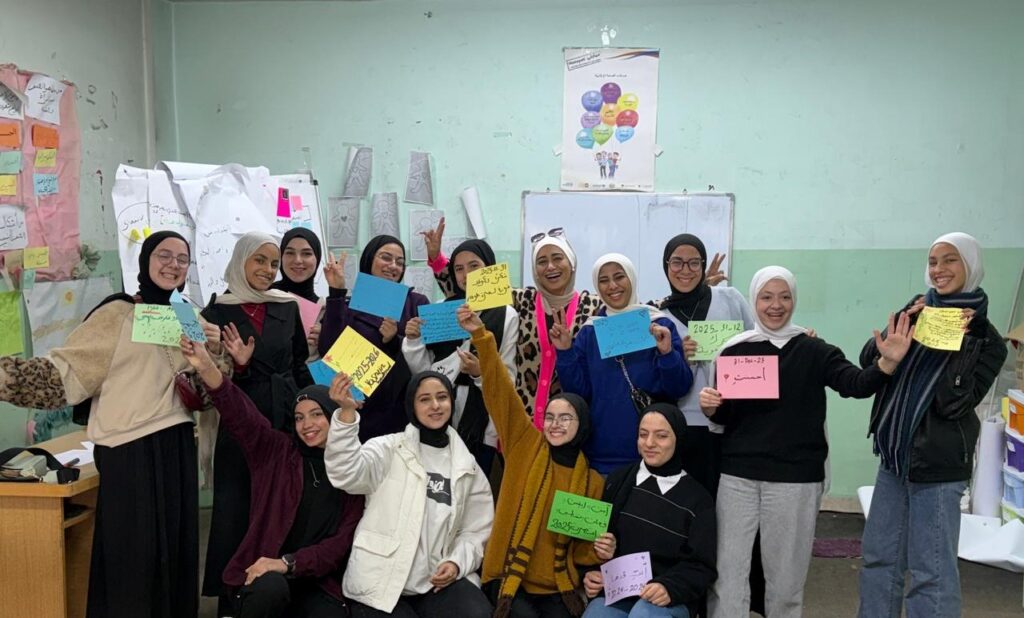In January, Beyond the Classroom Foundation (BTCF), the organization I founded and run, hosted the SAFER Girls event in Abuja to commemorate the International Day of Education. The room was full of energy, girls learning about their rights, digital safety, and how to protect themselves both online and offline. We spoke about self-worth, the importance of education, and being confident in who they are.
But in the middle of all the excitement, something small happened that I haven’t been able to stop thinking about.
We were about to take pictures, and one of the girls wasn’t smiling. Her face was tight, almost angry. I walked over to her and quietly asked,“Are you okay?”
She paused, then looked at me and said, “I don’t know, ma. Sometimes I’m just very angry and I feel like I’m going crazy. So I just don’t talk.”
That moment has stayed with me, and I particularly revisited it last week during BTCF’s school tour to mark Menstrual Health Day, which occurs every 28 May.
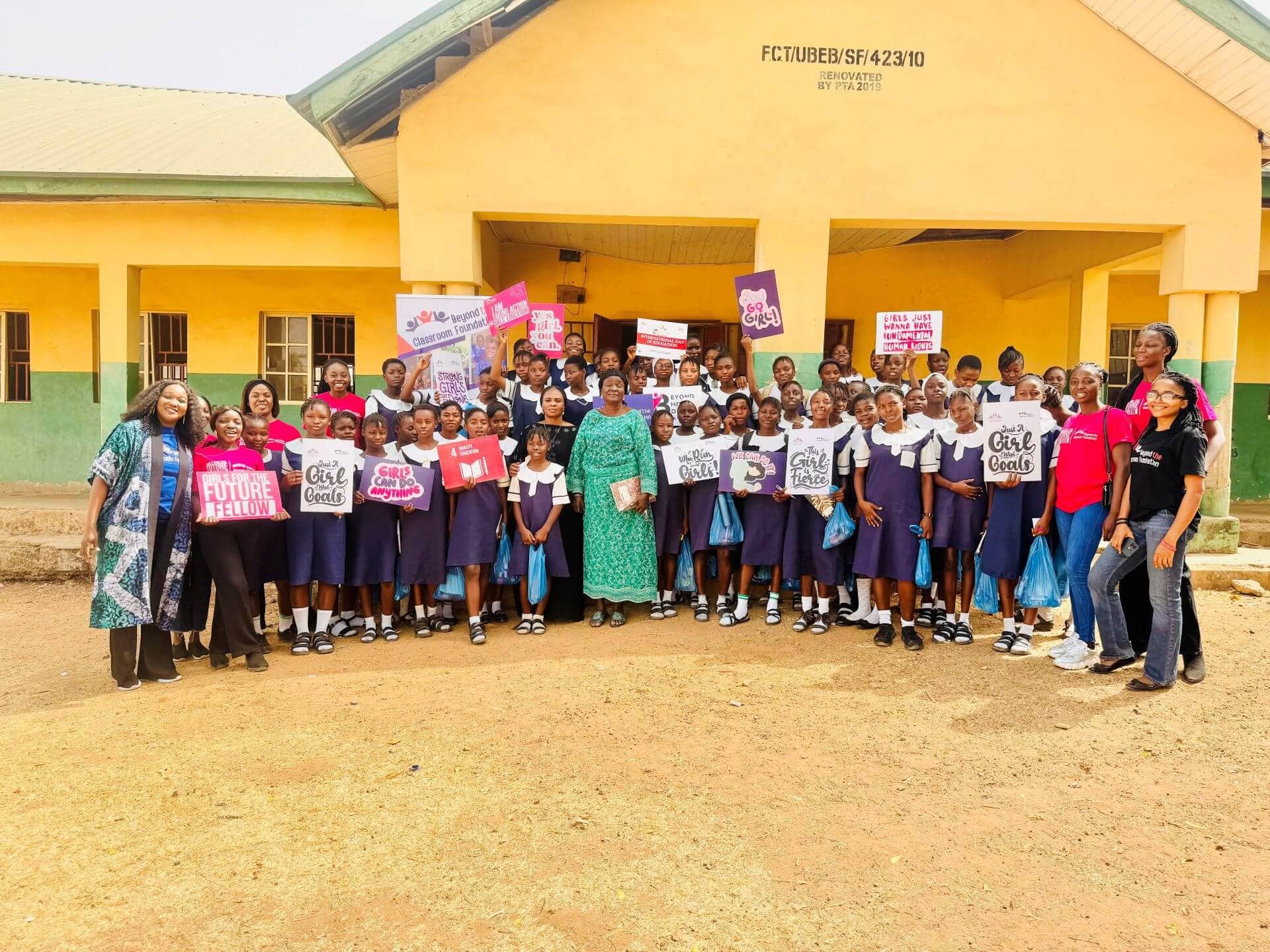
The young girl and I stepped aside and had a longer conversation. I asked a few gentle questions, when it started, if it happens often, if she noticed any pattern. And then it clicked. It was her menstrual cycle. Not the bleeding part, but the shift her hormones were going through. She didn’t know; no one had ever explained to her that her mood swings, her feelings of rage or sadness or confusion, might be part of a natural cycle her body goes through every month.
And the truth is, she’s not the only one.
Since that day, I’ve spoken to other girls, and even women, who say they feel out of control emotionally but never once connected it to their cycle. They say things like “I thought something was wrong with me” or “I just try to hide until it passes.” It breaks my heart.
Most of the conversations on Menstrual Health Day each year focus on period poverty, access to hygiene products, and the stigma around menstruation. All of that is important. But I can’t stop thinking about what we’re not talking about enough: How the menstrual cycle affects mental health.
We prepare girls to carry pads in their bags, but we don’t prepare them for the emotional weight that often comes with their period. We teach them how to track their dates, but not their moods. We explain bleeding, but not the waves of anxiety, sadness, or anger that can hit them before it even begins.
So many girls grow up believing they are too sensitive, too angry, too emotional, when in reality, it’s biology. Menstruation doesn’t just change how your body feels, it affects how you think, how you relate to people, and how you show up in the world. When no one tells you that, it’s easy to believe something’s wrong with you.
As the world collectively turns its gaze away from Menstrual Health and looks towards the next “international day,” I am writing this to insist that we keep the focus and menstrual health, and that we broaden the aperture. Menstrual health isn’t just about hygiene. It’s also about emotional well-being. It’s about mental health.
And it’s about giving girls the right language and information to understand what’s happening in their bodies, so they stop blaming themselves for something they never had the tools to explain. And to all the girls who have ever felt like your emotions were all over the place and couldn’t figure out why:
You’re not alone.
You’re not dramatic.
You’re not crazy.
You’re a girl, learning your body and your cycle.
And that knowledge is powerful.
For those of us who care about adolescent girls and help to guide their lives, let’s create spaces where they feel seen, supported, and safe enough to say, “Is this normal?” and actually get an honest answer.
Because honestly? This is what menstrual health really means.
